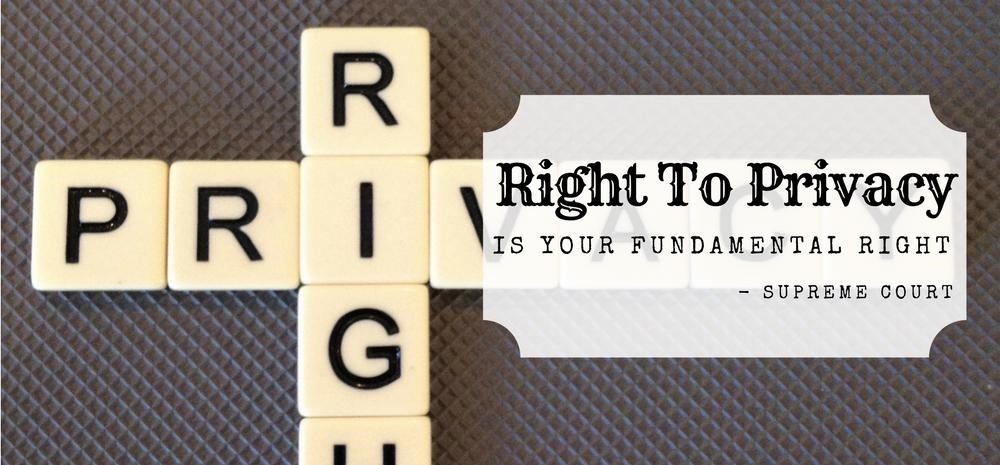The Supreme Court of India has recognised Right to Privacy as a fundamental right. This landmark judgement comes in the wake of several petitions against the mandatory imposition of Aadhaar by the government. The Court has, moreover, not given an exhaustive definition of what this “privacy” will pertain to, as it is to be decided on a case-to-case basis. The Court anticipated that a fixed definition of the term would result in a limitation of its implications. It stipulated that an individual has an inherent right to a protected space where she/ he is to be left alone. The Supreme Court also categorically said that the Court’s decision upholding the infamous Section 377 was wrongly decided. This Right to Privacy is being touted to have far reaching impacts, not only on the Aadhaar campaign, but also for homosexuality, control over one’s digital information, and the beef ban. This fundamental right will apply to both the public and the private spaces of the individual.
It is hard to determine where the public sphere ends, and the private sphere begins. There seem to be overlaps and constant interactions between the two. This is revealed even in the Court’s judgement which applies both to an individual’s sexual orientation and also her/ his Aadhaar identity. The social media has been flooded with reactions to the Supreme Court’s decision. Amidst the many reactions which applauded the courts, people have also tried to understand and grapple with what changes this judgement can bring to their daily lives. Twinkle Khanna’s light hearted take on the Right to Privacy and Triple Talaq had Twitterati in titters, albeit with certain exceptions. Khanna wrote, “Man: Where are u going? Fed-up Wife: Don’t have to tell you #RightToPrivacy now! Man: Talaq Talaq Talaq! Wife:TooLate TooLate Toolate #WhatAWeek.” While written in jest, these words do raise an important question as to what exactly privacy itself means to the billions of the country.
Defining privacy becomes problematic especially because it is not merely a legal concept but also a social, cultural, and political one. The dictionary describes privacy as the freedom from public attention or the state of not being observed by other people. It follows that an individual acts differently when aware of being under observation as opposed to when she/ he is assured of being left alone. This observation or public attention arguably ushers in an accountability and answerability which directly affects the individual’s autonomy. Consequently, an individual’s assertion of the need for privacy is viewed with suspicion. The government tried to dismiss the concerns regarding privacy as being an elitist concern, which only affects the rich people of the country. In saying so, it chose to overlook the negligence to starvation of the poor of the country due to the incompetency of the dispersal of ration through the biometrically operated Aadhaar. Even then, it is a truism that privacy affects the cultural and private spheres of the poor as well as the rich, be it at the level of a particular community or the family. The nuclear family is still not a universal phenomenon in the Indian society. It is still frowned upon unless orchestrated through necessities of migration. The accountability in the private and personal spheres is far greater in semi-urban or rural households. The need for privacy is more acutely felt here pertaining to choices of sexual orientation, protection of the rights of minorities and so on.
Culturally, the need for privacy has not been a pressing concern in India. Decisions pertaining to the individual’s body and personal liberty have traditionally been subject to intervention from the elders in one’s family and community. While the court’s judgement has yet to impact changes at the ground level pertaining even to the basic amenities of food and shelter, it seems foolhardy to expect attitudinal changes within the private space. And yet, it is precisely because the Court upheld the individual’s right to privacy, given the circumstances, that there can be hope of a gradual change in societal attitudes as well.
Also see:
Private Lives and Public Law: How the Privacy Judgement Bats for the Individual and the Collective
Right to Privacy is a Fundamental Right: Usha Ramanathan responds to the Supreme Court judgement
By Dipannita Ghosh:
All for a Toilet: Propaganda or Social Reality?
#AintNoCinderella: Online Campaign Against Misogyny





